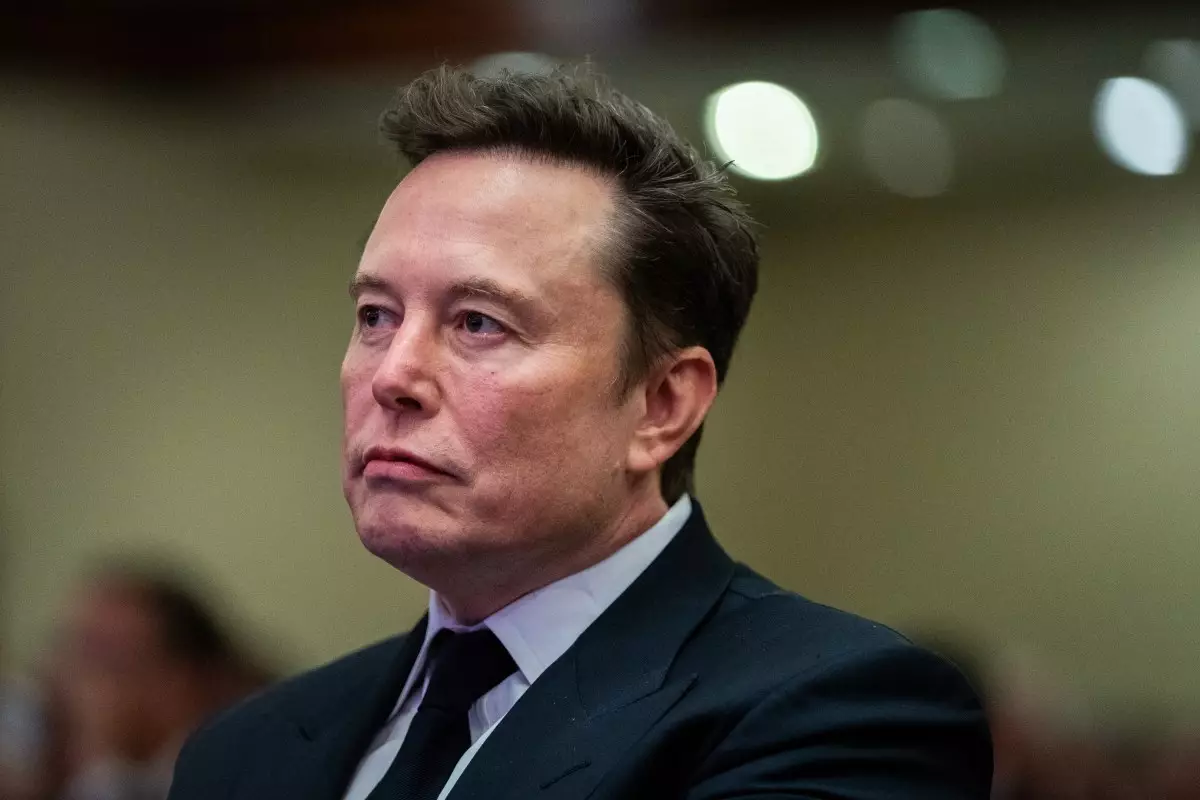In a significant development within the tech industry, a legal battle has emerged between tech mogul Elon Musk, OpenAI, and its close collaborator Microsoft. Musk’s legal team has filed for a preliminary injunction in the U.S. District Court for the Northern District of California, alleging that OpenAI and key individuals associated with it are engaging in anticompetitive practices detrimental to marketplace competition. This lawsuit sheds light on not just the intricacies of the conflict between Musk and OpenAI but also raises broader questions regarding corporate governance and the ethical implications of such practices in the rapidly evolving AI sector.
Musk’s attorneys are leveling serious accusations against OpenAI and its co-founders, including Sam Altman and Greg Brockman, as well as prominent figures such as Microsoft and LinkedIn’s Reid Hoffman. The crux of the allegations revolves around claims of discouraging investment in Musk’s AI venture, xAI, while also improperly leveraging sensitive information acquired through their partnership with Microsoft. Musk’s legal team argues that these actions not only undermine competition but also threaten to alter the very mission of OpenAI, which was originally established to promote the responsible development of artificial intelligence for the public good.
The motion includes diverse claims, pointing to OpenAI’s transformation into a profit-oriented entity, straying away from its foundational nonprofit goals. Musk’s lawyers contend that if the injunction is not granted, the core principles that originally guided OpenAI would be irreparably compromised, leading to significant public harm. They advocate for a brief cessation of OpenAI’s current trajectory to reassess its commitment to ethical practices in AI development.
Musk’s lawsuit is not new; an earlier case was withdrawn but resurfaced with new allegations and defendants, including Microsoft and two additional plaintiffs – Shivon Zilis and xAI itself. This revitalized legal action underscores Musk’s frustration over a perceived betrayal by OpenAI, a company he helped establish only to leave in 2018 due to disagreements over its direction. His claims hint at a betrayal of trust, specifically concerning over $44 million he allegedly contributed to the organization under the impression it would uphold its nonprofit ethos.
The core of Musk’s grievance lies in allegations that OpenAI is deliberately impeding xAI’s growth by coercing investors to abstain from supporting competing AI initiatives. This allegation raises a significant ethical concern regarding the degree to which established corporations can wield their influence to stifle emerging competition.
Further complicating the situation is the financial backing behind xAI. Reports suggest that, despite Musk’s allegations, xAI has successfully raised considerable funds, with recent reports indicating a $5 billion funding round involving significant investors. This reveals an interesting juxtaposition – Musk’s claims paint a picture of a company encumbered by external pressures, while, on the contrary, xAI appears to be thriving financially, which raises questions about the accuracy of Musk’s narrative and the underlying dynamics at play.
Moreover, the involvement of Microsoft complicates the narrative further. With a reported investment exceeding $13 billion into OpenAI, the strategic partnership raises critical questions about the legality of information sharing between these entities. The role of key players, including Altman and Hoffman, who hold substantial financial interests in both organizations, adds complexity to the case and brings to light potential conflicts of interest. Musk’s claims suggest a need for stricter regulatory oversight in order to mitigate any potential unfair advantages that might stem from such interconnected relationships.
Musk’s quest for a preliminary injunction underscores a growing tension within the tech industry regarding ethics, accountability, and the governance of artificial intelligence. This lawsuit could serve as a catalyst for more stringent regulations surrounding corporate conduct in AI, particularly when it involves the intertwining of profit motives and altruistic objectives.
Furthermore, it reflects the ongoing struggle to maintain transparency and integrity in a sector that is increasingly vital to our society’s future. The potential ramifications of this case, should Musk succeed, could reshape the governance structures of AI companies, encouraging a more philanthropic approach rather than purely profit-driven motives.
As this legal saga unfolds, it expands beyond just the parties involved and taps into vital discussions about the role of major tech corporations, ethical transparency, and competition within the burgeoning field of artificial intelligence. As Musk’s legal team moves forward with their claims, both the tech industry and observers worldwide are left waiting, questioning who will prevail in this high-stakes confrontation over control, ethics, and the future of AI development. The outcome could redefine not only personal ambitions but also the foundational principles instilled in one of the most influential technologies of our time.

